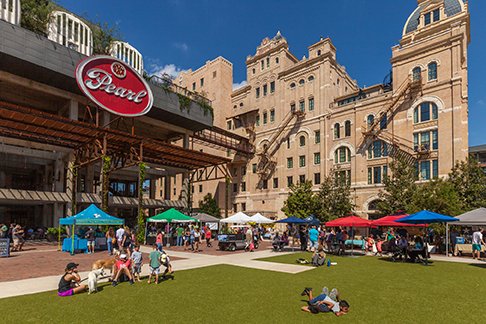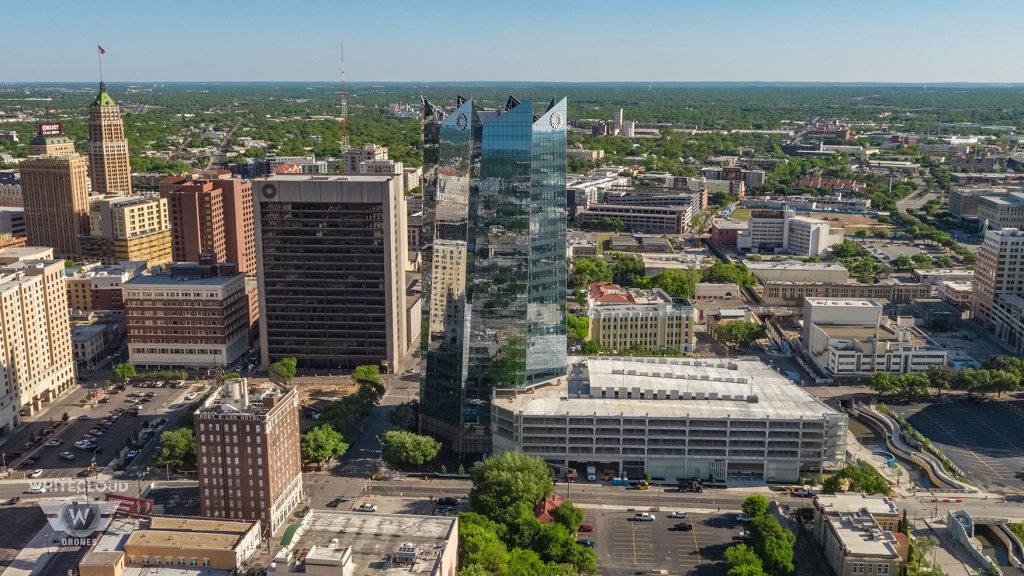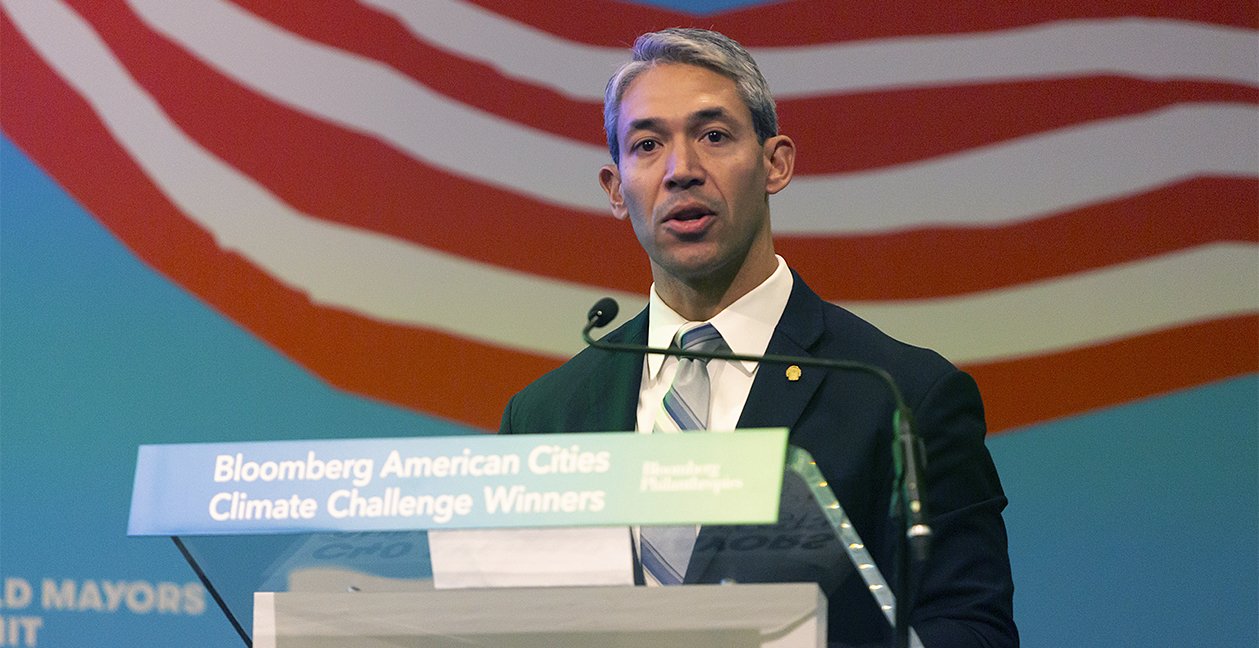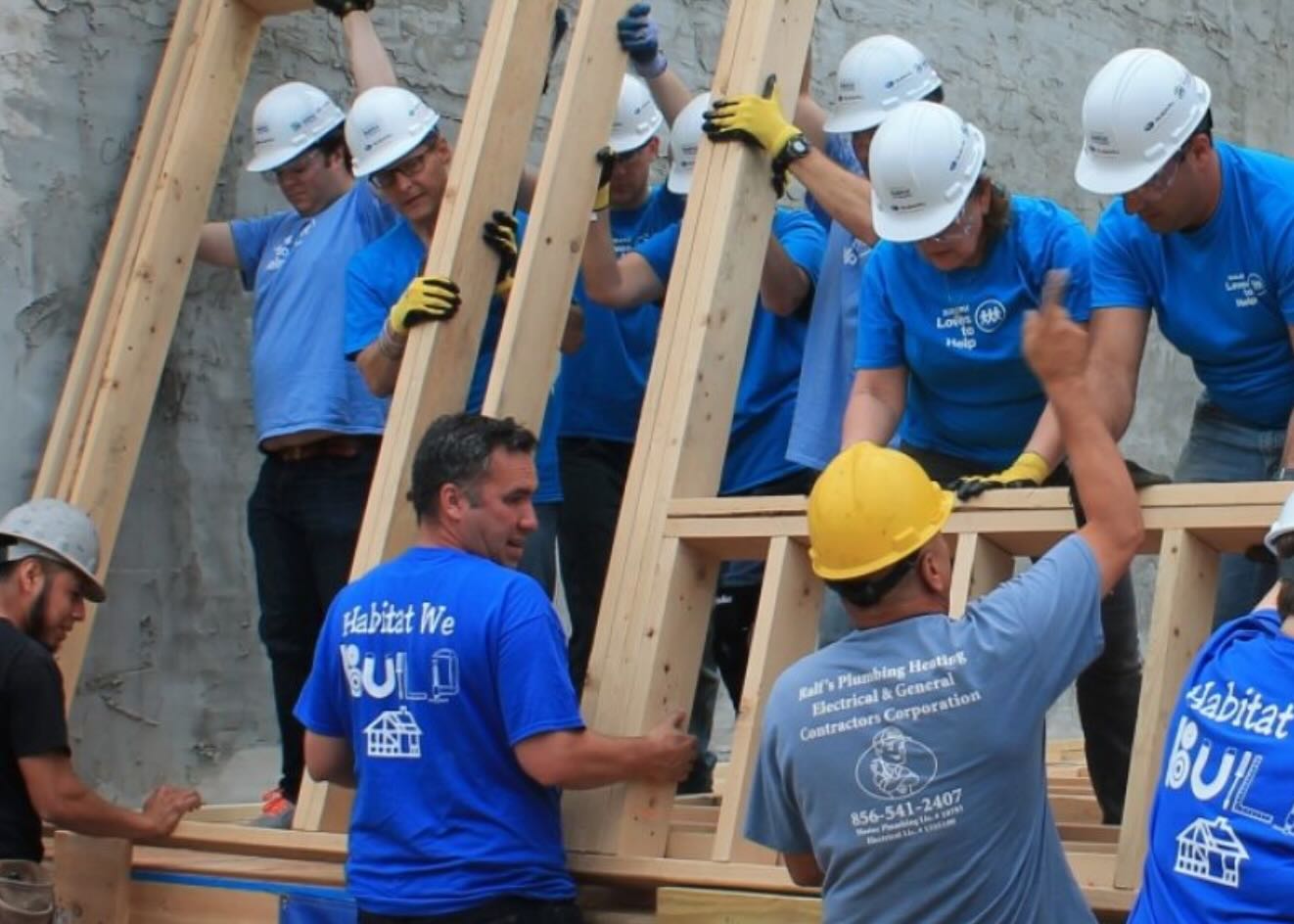I first interviewed San Antonio mayor Ron Nirenberg for Worth in June 2018, about a year after the former city councilman was first elected mayor. Nirenberg, who’d only been elected to the city council in 2013, had done something unusual in San Antonio politics—beaten an incumbent mayor, Ivy Taylor, the first time a challenger had beaten an incumbent in San Antonio in 25 years. Though San Antonio’s municipal elections are nonpartisan, Nirenberg, a progressive, came into office bursting with big ideas about affordable housing, enhanced public transportation, promoting economic equity and enlarging access to higher education.
Two years later, in June 2019, Nirenberg narrowly escaped becoming the second incumbent mayor to lose to a challenger—first-term councilman Greg Brockhouse—in the past three decades; Nirenberg won a runoff with Brockhouse by a hairs-breath 2.2 percent, or a little more than 2,500 votes in a city of 1.5 million. The campaign reflected both the division of the country generally—Republican voters went for Brockhouse—but also frustration with what the San Antonio Express-News describes as Nirenberg’s “uncommunicative style.” (In my experience, Nirenberg loves to talk policy, but is less comfortable with retail politics.)

When I met with Nirenberg recently to talk about his reelection, his agenda, and his plans to further San Antonio’s emergence as “a rising American city,” the mayor seemed changed by the preceding two years—somewhat older, somewhat chastened and more politically cautious than he had been. “You don’t always get an opportunity to look over the brink, understand the temporal nature of politics and be stronger because of it,” Nirenberg explained.
Which is not to say that Nirenberg’s agenda has become any less ambitious. He’s working on a controversial plan to redirect some funds away from the Edwards Aquifer, which supplies the majority of the water to the region, and toward a public transportation plan. He’s helping to launch AlamoPromise, a program to make community college free to high school graduates in Bexar County, which includes San Antonio. He’s still focused on promoting economic opportunity for a city whose poverty rate of around 17 percent, a chronic problem, is one of the country’s highest. “I’ve refocused my attention on not wasting any time,” Nirenberg says. “Just attack the agenda.”
Q: Let’s start with a big-picture question. Give me your sense of the state of the city.
A: 2020 is a year of great decisions for San Antonio. My first term was spent in large part planning and executing for the kinds of work that we really started to execute over the last six months or so and will continue do so through the rest of this term. We’re making significant headway now on moving some of the major fundamentals of the city so that we can become a more prosperous city, a more equitable city and one that we’ll be proud to leave behind to our children.

Give me an example.
We launched the AlamoPromise program, our free community college program. It’s critically important in a city that struggles with generational poverty that we create access to post-secondary education.
How does AlamoPromise work?
It provides tuition-free community college to all Bexar County high school graduates, while also surrounding them with an ecosystem of nonprofit service providers and employers that will ensure their success during their school years and also a smooth transition into a gainful career.
What’s going to be the impact of that on your city?
It is our moonshot to end generational poverty in San Antonio—which wasn’t created overnight but has reached a point where it’s now one of the most intractable proportions of poverty in the country.
What will AlamoPromise cost, and how will you pay for it?
It’s in the $150 million, $180 million range [to fund]. A portion of the money comes from the city’s general fund, a portion through the county and then there’s a significant amount that’s coming in through the private sector. And then, of course, there is a constellation of nonprofits and other organizations.
What other parts of your agenda are moving forward?
Our housing strategy is finally gaining traction. We relaunched our housing commission, which broadly oversees the coordination of the entire housing ecosystem, which is very complicated in San Antonio. We’re hiring our first-ever chief housing officer for the city of San Antonio. And we are one of the only major markets [in the country] to see growth in affordable homes costing under $200,000.
The mayor of Orlando, Buddy Dyer, once told me that there are certain projects that mayors can really only make progress on over multiple terms in office—affordable housing in particular. Have you found the same thing?
Yes, we have, and that’s sort of my pitch for San Antonio—that based on our demographic growth, we are the city of America’s future. Given the challenges that we’re facing that other cities are only going to be waking up to in 30 years, we are a test tube for good policymaking. And we’ve done that in affordable housing, in early childhood education and in our climate action adaptation plan. We’re also doing that in [trying to build] a public transit system over a city that sprawls 500 square miles. That will make a significant difference in economic and physical mobility.

Your hometown newspaper, the San Antonio Express-News, has reported that you’re taking criticism from both the left, which says that you’re not pushing hard enough, and the right, which doesn’t like your plan to reduce carbon emissions.
You thought that wasn’t accurate?
You tell me.
I think that’s pretty accurate.
How do you navigate that dynamic?
I don’t profess to be very good at the politics. I just try to figure out what’s the right answer, what’s the right thing to do for the community and go with that. I work with people who figure out the politics of it. But it is getting to be a more complex political environment, because the polarization and splintering of the right side of the aisle that we saw 20 years ago now seems to be occurring on the left.
How do you hold the center under those circumstances?
That’s a great question. The way I’ve thought about it is, we have to go as fast as we possibly can because these issues are so entrenched. We have to go as fast and as bold as we possibly can, almost to the point of the wheels falling off—but not that fast.
You’ve always struck me as an idealist who believes that good policy translates into good politics. Is that a fair description?
I don’t know if that’s necessarily true.
You don’t think so?
No. I came off a pretty bruising reelection, as you know. It was very clear what the right policy was, but we ran into a meat grinder of provincial politics that we had to eventually defeat.
Which I was surprised by, partly because when we last spoke, in early 2019, you didn’t seem to be anticipating such a tight race.
No. And there were probably some lessons learned from that, maybe the last six months of my first term, that have made me better. In fact, I view it as a blessing. You don’t always get an opportunity to look over the brink, understand the temporal nature of politics and then step back and be stronger from it.
So what are the lessons you’ve learned?
One is that I spend much less time doing the wonky policy stuff in this office and I’m really much more out front in the neighborhoods that got me where I am—where we are—to begin with. Also, as hard as it is in City Hall to stay away from the minor stuff, I’ve tried to stay focused on the big picture. We vote [in council] on maybe 50 things every week, and maybe one or two of them will make the daily paper.
We’ve talked in the past about your own evolution as a political leader. Sounds like this experience has changed the way you practice politics.
I’ve refocused my attention on not wasting any time. Not sweating the small stuff, but also, just attack the agenda. There are some big things that we need to accomplish in this city. A lot of them center around breaking cycles of generational poverty and achieving our potential, given the resources and the human capital and the heritage that we have, of being one of the strongest cities in America.
Of course, mayors are also expected to fix potholes. How do you focus on the big picture, where results aren’t immediately visible, but also pay attention to the daily life issues that voters also care about?
What real people care about is the mantra we always have to keep in mind, even when we’re looking at these big policy goals. But invariably, each of these big policy goals should translate into changing the day-to-day existence of the people we serve. Housing affordability is this big mountain that we’ve got to move, but it’s got to be felt by the single mother who’s having to write her rent check that month. For the first two years, we were talking about this big mountain. Finally, now, we’re starting to see that rent check stabilize and, in some cases, get smaller.
We’ve talked in the past about the challenge of leading a blue city in a red state, and in a time when the White House seems generally hostile to cities because, for the most part, they vote blue. How are you feeling about the state of the country at the moment?
I’m embarrassed that there’s a loss of America’s reputation in the world. That’s palpable. Wherever I go overseas, when I visit embassies or visit with colleagues [abroad], there’s a real sense that the confidence people had in America’s ability to figure out its own problems, let alone the problems of others, is waning.
At the same time, there’s always a sense of optimism because we are a strong economy, and we are once again in a time of renewal. Hope springs eternal during election season.

Are you supporting anyone in the Democratic primary?
No, I’m not endorsing anyone during the primary. But I was very supportive of our hometown guy, Julián [Castro], who was San Antonio mayor from 2009 to 2014]. I thought he was a great visionary and still is.
You’re the mayor of San Antonio but, obviously, live in the state of Texas. Can Democrats win here with a candidate who describes himself as a socialist?
[Long pause.] That’s for the political pundits to figure out.
I hope we’ll talk again next year. What will you hope to have accomplished by then?
I believe that we will have resounding proof that San Antonio residents are investing in the future of the city, so that San Antonio will become not only more equitable but more prosperous and more competitive in America’s landscape. It’ll be harder and harder to ignore San Antonio as a rising city.







